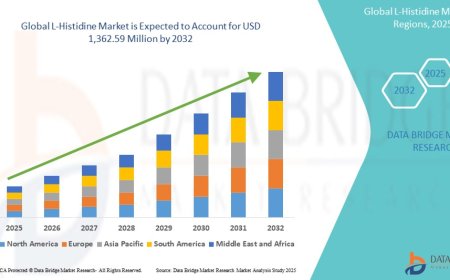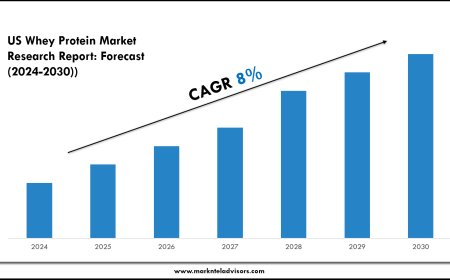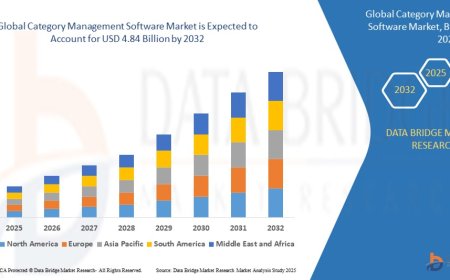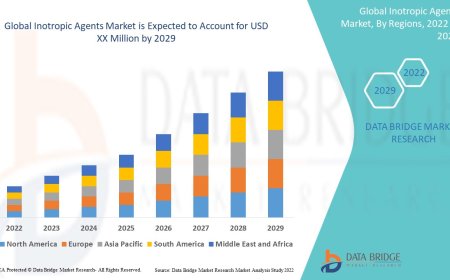Top 10 Investment Platforms for Beginners and Experts
Top 10 Investment Platforms for Beginners and Experts You Can Trust In today’s rapidly evolving financial landscape, choosing the right investment platform is more critical than ever. Whether you’re taking your first steps into the world of stocks, ETFs, mutual funds, or crypto, or you’re a seasoned investor seeking advanced tools and low-cost trading, the platform you select can make or break you
Top 10 Investment Platforms for Beginners and Experts You Can Trust
In todays rapidly evolving financial landscape, choosing the right investment platform is more critical than ever. Whether youre taking your first steps into the world of stocks, ETFs, mutual funds, or crypto, or youre a seasoned investor seeking advanced tools and low-cost trading, the platform you select can make or break your financial outcomes. With hundreds of options available, the challenge isnt just finding a platformits finding one you can truly trust.
Trust in investment platforms goes beyond flashy interfaces or aggressive marketing. Its rooted in regulatory compliance, transparent fee structures, robust security, consistent performance, and user-centric design. This guide cuts through the noise to present the top 10 investment platforms that have earned the confidence of millionsbeginners and experts alike. Each platform listed here has been rigorously evaluated based on safety, features, accessibility, and long-term value.
By the end of this article, youll have a clear, unbiased roadmap to choosing the platform that aligns with your financial goals, risk tolerance, and experience level. No hype. No fluff. Just trusted recommendations backed by data, user feedback, and industry standards.
Why Trust Matters
Investing is not gambling. Its a disciplined, long-term strategy built on confidencein your knowledge, your strategy, and the tools you use. When you entrust your money to a platform, youre not just handing over access to a dashboardyoure placing your financial future in its hands. Thats why trust isnt optional. Its foundational.
Untrustworthy platforms can expose you to hidden fees, poor execution, data breaches, or even outright fraud. In recent years, several platforms have collapsed under regulatory scrutiny or mismanagement, leaving users with frozen assets and no recourse. Meanwhile, reputable platforms operate under strict financial regulationssuch as SEC oversight in the U.S., FCA authorization in the UK, or ASIC licensing in Australiaensuring your funds are safeguarded and transactions are transparent.
Trust also means reliability. A platform that crashes during market volatility, delays withdrawals, or hides fee structures in fine print cannot be trusted. The platforms featured here have demonstrated consistent uptime, clear communication, and accountabilityeven during periods of extreme market stress.
Another critical component of trust is education. The best platforms dont just execute tradesthey empower users. Whether youre a beginner needing step-by-step guidance or an expert seeking advanced analytics, platforms that invest in user education foster long-term success. They provide tutorials, market insights, and risk management toolsnot just sales pitches.
Finally, trust is earned through transparency. This includes clear fee disclosures, real-time portfolio tracking, and open communication about how your data is used. Platforms that hide behind vague terms or obscure pricing models are not worth your attention. The platforms listed here operate with full clarity, so you always know what youre paying for and what youre getting.
Choosing a trustworthy platform is the first step toward financial independence. Its the difference between building wealth and losing it to avoidable mistakes. Lets explore the top 10 platforms that have consistently proven themselves worthy of that trust.
Top 10 Investment Platforms for Beginners and Experts
1. Vanguard
Vanguard stands as a pillar of integrity in the investment world. Founded by John C. Bogle, the pioneer of index investing, Vanguard operates under a unique client-owned structuremeaning the company is owned by its mutual fund shareholders, not external investors. This alignment of interests ensures that Vanguards primary goal is to maximize returns for its clients, not to generate corporate profits.
For beginners, Vanguard offers an intuitive interface with pre-built portfolio options like Target Retirement Funds, which automatically adjust asset allocation based on your retirement date. These funds are ideal for those who want a set it and forget it approach without needing to understand complex asset allocation strategies.
Experts appreciate Vanguards low expense ratiosthe lowest in the industry for index funds and ETFs. With many funds charging less than 0.10% annually, the long-term savings compound significantly. Vanguard also offers commission-free trading on its own ETFs and mutual funds, making it one of the most cost-effective platforms for buy-and-hold investors.
Security is robust, with two-factor authentication, encrypted data transmission, and FDIC insurance on cash balances. Vanguards educational resources are among the most comprehensive in the industry, including webinars, research reports, and retirement calculatorsall freely accessible.
While Vanguard doesnt offer crypto or options trading, its focus on low-cost, diversified, long-term investing makes it the gold standard for those prioritizing stability and performance over speculation.
2. Fidelity Investments
Fidelity is a full-service investment powerhouse trusted by millions for its breadth of offerings, superior customer experience, and institutional-grade research tools. Unlike many newer fintech platforms, Fidelity has decades of experience navigating market cycles, regulatory changes, and technological shifts.
Beginners benefit from Fidelitys guided investing tools, including personalized portfolio recommendations and a free financial planning service that connects users with certified planners. The platform also offers a zero-fee brokerage account with no minimum balance, making it accessible to those starting with small amounts.
Experts are drawn to Fidelitys advanced trading platform, Active Trader Pro, which provides real-time data, customizable charts, algorithmic trading capabilities, and direct market access. Fidelity also offers a wide range of research reports from its in-house analysts and third-party providers like Morningstar and S&P Global.
One of Fidelitys standout features is its cash management account, which offers a competitive interest rate on uninvested cashuncommon among competitors. Additionally, Fidelity offers commission-free trades on U.S. stocks, ETFs, and options, and its one of the few platforms that allows fractional share investing without restrictions.
Fidelitys security protocols are industry-leading, including biometric login, account alerts, and fraud monitoring. The platform is also fully regulated by the SEC and FINRA, and SIPC insurance covers up to $500,000 in securities and $250,000 in cash.
Whether youre managing a simple retirement portfolio or executing complex multi-asset strategies, Fidelity provides the tools, reliability, and support to succeed.
3. Charles Schwab
Charles Schwab combines the reliability of a traditional brokerage with the innovation of a modern fintech platform. Known for its client-first philosophy, Schwab offers a seamless blend of human support and digital efficiency, making it ideal for both new and experienced investors.
Beginners will appreciate Schwabs extensive educational content, including video tutorials, interactive courses, and a dedicated Learn section that breaks down investing concepts from the ground up. The platform also offers a Portfolio Checkup tool that analyzes your holdings and suggests improvements based on your goals.
Experts value Schwabs powerful trading platforms, including StreetSmart Edge, which supports advanced order types, real-time options chain analysis, and customizable workspaces. Schwab also offers commission-free trading on U.S. stocks, ETFs, and options, with no account minimums.
One of Schwabs most compelling advantages is its nationwide network of physical branchesover 200 locationswhere investors can receive face-to-face advice without paying advisory fees. This hybrid model is rare among digital-first platforms and adds a layer of accessibility and trust.
Swiss bank-level security measures are in place, including encryption, multi-factor authentication, and transaction monitoring. Schwab is a member of SIPC and offers additional insurance through Lloyds of London, covering up to $150 million in securities and $1.9 million in cash.
With no foreign transaction fees and access to global markets, Schwab is also a top choice for investors looking to diversify internationally. Its integration with Schwab Bank allows for seamless cash management, including debit cards and high-yield savings accounts.
4. E*TRADE
E*TRADE has long been synonymous with accessible trading for the retail investor. While it was acquired by Morgan Stanley in 2020, it continues to operate independently with the same user-friendly interface and robust feature set that made it a household name.
For beginners, E*TRADEs Power of E*TRADE educational platform is unmatched. It includes over 1,000 video lessons, live webinars, and interactive simulators that let you practice trading with virtual money. The platform also offers pre-built model portfolios and a Smart Select feature that recommends investments based on your risk profile.
Experts are drawn to E*TRADEs advanced trading tools, including the Power E*TRADE platform, which supports complex options strategies, real-time Level II quotes, and customizable watchlists. The platform also offers commission-free trading on U.S. stocks, ETFs, and optionswith no per-contract fees for options trades.
E*TRADEs mobile app is consistently rated among the best in the industry, offering full functionality for trading, research, and portfolio monitoring. It includes push notifications for price alerts, earnings dates, and dividend payments.
Security is comprehensive, with biometric login, account lock features, and 24/7 fraud monitoring. E*TRADE is SIPC-insured and backed by Morgan Stanleys financial strength, providing added confidence in its long-term stability.
One unique feature is the E*TRADE Credit Line, which allows investors to borrow against their portfolio without selling assetsa valuable tool for tax-efficient liquidity management.
5. Robinhood
Robinhood revolutionized investing by introducing commission-free trading and a sleek, intuitive interface designed for mobile-first users. While initially popular among younger, tech-savvy investors, Robinhood has evolved into a credible platform for both beginners and experienced traders.
Beginners love Robinhoods simplicity. Opening an account takes minutes, and the clean design eliminates overwhelming jargon. Fractional shares allow users to invest in expensive stocks like Amazon or Tesla with as little as $1. The platform also offers a cash management account with FDIC insurance and a 0.50% APY on uninvested cash.
Experts appreciate Robinhoods advanced features, including options trading, extended-hours trading, and margin trading (with Robinhood Gold). The platform also provides basic technical indicators, real-time market data, and customizable watchlists. While it lacks deep research tools compared to Fidelity or Schwab, its speed and accessibility make it ideal for active traders who prioritize execution over analysis.
Robinhoods security measures include two-factor authentication, encryption, and SIPC protection up to $500,000. The platform is regulated by the SEC and FINRA and has made significant improvements to its compliance and transparency since its early days.
Robinhood also offers cryptocurrency trading, giving users access to over 20 digital assets without the complexity of standalone crypto exchanges. This integration makes it a one-stop platform for those interested in both traditional and digital assets.
While Robinhood doesnt offer IRAs or retirement accounts as comprehensively as other platforms, its recent expansion into retirement products shows a commitment to serving long-term investors.
6. Interactive Brokers
Interactive Brokers (IBKR) is the platform of choice for professional traders, hedge funds, and global investors seeking institutional-grade tools at retail prices. Its low-cost structure and global market access make it uniquely suited for expertsbut its educational resources and tiered pricing also make it viable for serious beginners.
Beginners may find IBKRs interface daunting at first, but the platform offers a free paper trading account to practice before committing real capital. IBKRs Trader Workstation (TWS) and Client Portal provide deep customization, real-time data feeds, and advanced order typesincluding iceberg orders, trailing stops, and bracket orders.
Experts rely on IBKR for its unparalleled global reach: access to 135 markets across 33 countries, support for over 30 currencies, and low foreign exchange fees. Commission structures are highly competitive, with some trades costing as little as $0.0005 per share. IBKR also offers margin rates as low as 1.5%, among the best in the industry.
Security is enterprise-grade, with multi-layered encryption, biometric authentication, and compliance with global regulations including SEC, FINRA, FCA, and MAS. Client funds are segregated and protected under SIPC and additional private insurance.
IBKR also provides comprehensive research tools, including fundamental data, analyst ratings, economic calendars, and real-time news feeds from Dow Jones and Reuters. Its API allows for algorithmic and automated trading, making it a top pick for quant traders and developers.
While not the most beginner-friendly platform, Interactive Brokers rewards those willing to learn with unmatched flexibility, cost-efficiency, and global capabilities.
7. SoFi Invest
SoFi Invest emerged as a disruptor by combining investing with personal finance tools in a single app. Designed for millennials and Gen Z, SoFi offers a frictionless experience that appeals to beginners while still offering depth for more experienced users.
Beginners benefit from SoFis automated investing feature, which creates a diversified portfolio of ETFs based on your risk tolerance and goals. The platform offers two modes: Active (self-directed trading) and Automated (robo-advisor). Both are commission-free, with no account minimums.
SoFis user interface is clean, modern, and educational. Each investment recommendation comes with a brief explanation, helping users understand why theyre being advised to buy certain assets. The app also includes financial health tools like credit score tracking, budgeting, and debt managementmaking it a holistic financial hub.
Experts can use the Active Investing mode to trade stocks, ETFs, and options with no commissions. SoFi also offers fractional shares and extended-hours trading. While it lacks advanced charting tools, its simplicity and integration with SoFis banking products (checking, savings, loans) create a seamless ecosystem.
Security is robust, with bank-level encryption, two-factor authentication, and SIPC protection up to $500,000. SoFi is a member of the FDIC for its cash management accounts and is regulated by the SEC.
One of SoFis most compelling advantages is its fee-free structure: no account fees, no inactivity fees, no transfer fees. Combined with its high-yield savings account and student loan refinancing options, SoFi is ideal for users who want to manage all aspects of their finances in one place.
8. Ally Invest
Ally Invest, a subsidiary of Ally Financial, offers a clean, no-frills platform with exceptional value for cost-conscious investors. It combines the reliability of a traditional broker with the digital agility of a fintech startup.
Beginners will appreciate Allys free educational resources, including webinars, articles, and a Learn section that covers everything from how to read a balance sheet to understanding dividend reinvestment. The platform also offers a Portfolio Builder tool that suggests diversified ETF portfolios based on your goals.
Experts value Allys low-cost trading structure: $0 commissions on U.S. stocks, ETFs, and optionswith no per-contract fees for options. Ally also offers margin rates as low as 9.5%, which is competitive for a retail platform. Its desktop platform, Ally Invest Trading Platform, supports advanced order types and real-time data.
Allys mobile app is intuitive and feature-rich, allowing users to trade, monitor positions, and receive alerts without complexity. It also integrates seamlessly with Ally Bank accounts, enabling instant transfers and a high-yield savings option with no minimum balance.
Security is top-tier, with encryption, multi-factor authentication, and SIPC protection up to $500,000. Ally is regulated by the SEC and FINRA and has maintained a clean compliance record for over a decade.
Allys lack of financial advice or human advisors may be a drawback for some, but for self-directed investors, its a strengthno upsells, no pressure, just clean, low-cost access to markets.
9. Public
Public is a social investing platform that blends community interaction with investing education. Its designed for users who want to learn by observing others, sharing insights, and following investment themes rather than just picking stocks.
Beginners are drawn to Publics Social Feed, where users post about their trades, explain their reasoning, and discuss market trends. This peer-to-peer learning model demystifies investing and reduces the intimidation factor. Public also offers fractional shares and commission-free trading on stocks and ETFs.
Experts appreciate Publics thematic investing approach, which allows users to invest in curated portfolios like Renewable Energy, AI & Robotics, or Diversity & Inclusion. The platform also offers IPO access and crypto trading, giving users exposure to emerging asset classes.
Publics interface is visually engaging and easy to navigate, with clean charts and real-time updates. The app includes a Investing 101 section with bite-sized lessons, making it ideal for those building foundational knowledge.
Security is strong, with encryption, two-factor authentication, and SIPC protection up to $500,000. Public is regulated by the SEC and FINRA and is committed to transparency in its fee structurethere are no hidden charges.
While Public lacks advanced charting or technical analysis tools, its strength lies in its community-driven model. For users who learn best through collaboration and storytelling, Public offers a unique and trustworthy experience.
10. Wealthfront
Wealthfront is a leading robo-advisor that automates investing with algorithm-driven portfolio management. Its ideal for hands-off investors who want professional-grade strategies without the high fees of traditional financial advisors.
Beginners benefit from Wealthfronts automated onboarding process, which asks a few questions about your goals, timeline, and risk toleranceand then builds and manages a diversified portfolio of low-cost ETFs. The platform automatically rebalances your portfolio and harvests tax losses to reduce your tax burden.
Experts appreciate Wealthfronts advanced features, including direct indexing (available for accounts over $100,000), which allows for individual stock-level tax optimization. Wealthfront also offers a cash account with a competitive APY and FDIC insurance up to $1 million through its partner banks.
Its financial planning tools go beyond investing: Wealthfront provides free retirement planning, student loan advice, and a Path feature that helps users plan for major life events like buying a home or starting a business.
Security is enterprise-grade, with bank-level encryption, two-factor authentication, and SIPC protection. Wealthfront is regulated by the SEC and adheres to strict fiduciary standardsmeaning its legally required to act in your best interest.
While Wealthfront doesnt offer individual stock trading or options, its focus on tax-efficient, diversified, long-term growth makes it one of the most trustworthy robo-advisors on the market.
Comparison Table
| Platform | Best For | Commission Fees | Minimum Deposit | Asset Classes | Robo-Advisor | Options Trading | Crypto | Security | Education |
|---|---|---|---|---|---|---|---|---|---|
| Vanguard | Long-term, low-cost investors | $0 on Vanguard funds | $0 | Stocks, ETFs, Mutual Funds, Bonds | Yes | No | No | SEC/FINRA, SIPC, FDIC | Extensive |
| Fidelity | All-in-one investors | $0 | $0 | Stocks, ETFs, Mutual Funds, Bonds, Options, Crypto | Yes | Yes | Yes | SEC/FINRA, SIPC, Lloyds | Comprehensive |
| Charles Schwab | Hybrid investors (digital + human) | $0 | $0 | Stocks, ETFs, Mutual Funds, Bonds, Options, Global Markets | Yes | Yes | No | SEC/FINRA, SIPC, Lloyds | Extensive |
| E*TRADE | Active traders | $0 | $0 | Stocks, ETFs, Mutual Funds, Bonds, Options | Yes | Yes | No | SEC/FINRA, SIPC | Excellent |
| Robinhood | Mobile-first, beginner traders | $0 | $0 | Stocks, ETFs, Options, Crypto | Yes | Yes | Yes | SEC/FINRA, SIPC | Basic |
| Interactive Brokers | Global, advanced traders | From $0.0005/share | $0 | Stocks, ETFs, Options, Futures, Forex, Bonds, Crypto, Global Markets | No | Yes | Yes | SEC/FINRA/FCA/MAS, SIPC | Advanced |
| SoFi Invest | Young investors, all-in-one finance | $0 | $0 | Stocks, ETFs, Options | Yes | Yes | Yes | SEC, SIPC, FDIC | Good |
| Ally Invest | Cost-conscious self-directed traders | $0 | $0 | Stocks, ETFs, Mutual Funds, Options | No | Yes | No | SEC/FINRA, SIPC | Good |
| Public | Social, community-driven investors | $0 | $0 | Stocks, ETFs, Crypto | No | Yes | Yes | SEC/FINRA, SIPC | Community-based |
| Wealthfront | Hands-off, automated investors | $0 (0.25% annual fee) | $500 | ETFs (Direct Indexing over $100k) | Yes | No | No | SEC, SIPC, FDIC | Financial planning focus |
FAQs
What makes an investment platform trustworthy?
A trustworthy investment platform is regulated by recognized financial authorities (such as the SEC or FCA), provides clear fee disclosures, offers robust security measures like encryption and two-factor authentication, and is insured by organizations like SIPC or FDIC. It should also have a history of stable operations, transparent communication, and a commitment to client education.
Can beginners use advanced platforms like Interactive Brokers?
Yes, but with caution. Platforms like Interactive Brokers offer powerful tools that can be overwhelming for beginners. However, they also provide paper trading accounts, educational content, and low-cost entry points. Beginners should start with the basic interface and gradually explore advanced features as they gain confidence.
Are fractional shares safe?
Yes. Fractional shares represent partial ownership in a company, just like whole shares. They are held in your name through the platforms custodian and are protected by SIPC insurance. Fractional shares are not a derivative or synthetic productthey are actual ownership stakes.
Which platform is best for retirement investing?
Vanguard, Fidelity, and Wealthfront are top choices for retirement investing. Vanguard and Fidelity offer low-cost index funds and extensive IRA options, while Wealthfront provides automated tax-loss harvesting and retirement planning tools. All three are highly regulated and designed for long-term growth.
Do I need to pay for research tools?
No. Most platforms listed here offer free research tools, including market news, analyst ratings, and educational content. Fidelity, Schwab, and E*TRADE provide premium research at no extra cost. Only specialized third-party services may require subscriptions.
Is crypto trading safe on these platforms?
Crypto trading on regulated platforms like Fidelity, Robinhood, and SoFi is safer than using unregulated exchanges. These platforms hold assets in cold storage, comply with KYC/AML regulations, and provide SIPC protection for non-crypto holdings. However, crypto itself remains volatile and is not FDIC or SIPC-insured.
What happens if the platform goes out of business?
If a regulated platform fails, your securities are protected by SIPC insurance, which covers up to $500,000 in securities and $250,000 in cash. Your assets are held in segregated accounts and are not part of the platforms balance sheet. In most cases, your holdings are transferred to another broker without loss.
How do I choose between a robo-advisor and a self-directed platform?
Choose a robo-advisor like Wealthfront or Vanguard if you prefer automation, tax optimization, and minimal involvement. Choose a self-directed platform like Fidelity or Interactive Brokers if you want full control over your trades, access to advanced tools, and the ability to make your own decisions.
Are there hidden fees I should watch out for?
Watch for account maintenance fees, inactivity fees, wire transfer fees, and foreign exchange fees. All platforms listed here have transparent fee structures with no hidden charges. Always review the fee schedule on the platforms website before opening an account.
Can I use multiple platforms at once?
Yes. Many investors use multiple platforms to diversify risk, access different asset classes, or take advantage of unique features. For example, you might use Vanguard for long-term index funds, Robinhood for crypto, and Interactive Brokers for international stocks. Just ensure you track your holdings across platforms for tax and rebalancing purposes.
Conclusion
The journey of investing is deeply personal. Its not about chasing the latest trend or mimicking the loudest voice on social media. Its about building a strategy grounded in trust, discipline, and clarity. The platforms listed here have earned that trustnot through marketing slogans, but through consistent performance, regulatory compliance, and unwavering commitment to their clients.
For beginners, the key is simplicity and education. Platforms like SoFi, Public, and Vanguard make investing approachable without sacrificing security or long-term value. For experts, the focus is on control, cost-efficiency, and global access. Fidelity, Schwab, and Interactive Brokers deliver institutional-grade tools without the institutional price tag.
There is no single best platform. The right choice depends on your goals, experience level, and risk tolerance. But every platform on this list has one thing in common: they prioritize your financial well-being over their own profits. Thats the hallmark of true trust.
Before you invest, ask yourself: Do I understand what Im buying? Do I trust the platform to protect my assets? Does it align with my long-term vision? If the answer is yes, youre ready. The market doesnt reward speedit rewards patience, preparation, and the courage to choose wisely.
Start small. Stay consistent. Revisit your choices regularly. And above alltrust the process, and the platforms that make it possible.


























